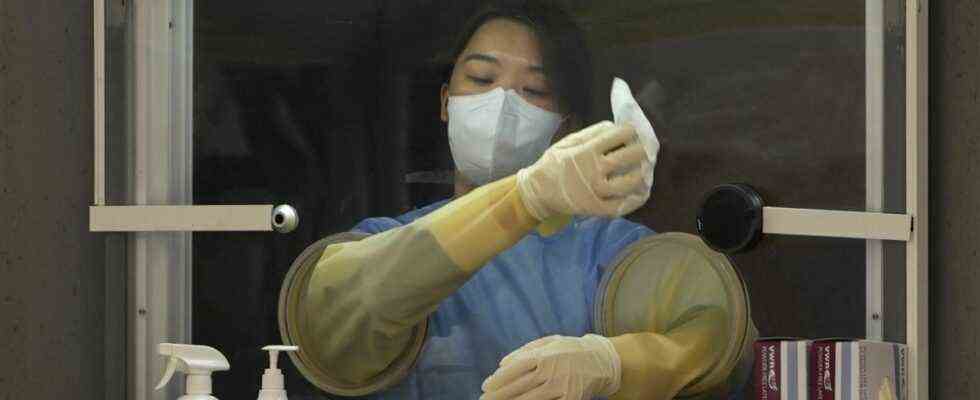Since Monday there has been a different tone in the gyms in the greater Seoul area. The new ordinance of the South Korean government in the fight against the corona virus has been in effect since Monday: Fitness studio operators are no longer allowed to play music that is faster than 120 beats per minute. The idea behind it: With slower music, the sporting customers move more slowly on the treadmill, breathe less forcefully and thus also blow less coronavirus into the environment if they are infected. The industry struggles. In the Korea Times said a studio operator from Suwon: “Treadmills are the most popular machines, but if you can only run slow music on them, I don’t know who will pay for them.”
But South Korea is currently in the next stage of the corona crisis. On Sunday, the National Agency for Disease Control and Prevention KDCA reported 1,454 new infections, a record for a Sunday and confirmation of the worrying trend. For a country that approached zero in the summer of 2020, that’s staggering – even if the number of deaths remains relatively low at just over 2,000; According to Sunday’s data, 1.16 percent of those infected died of Covid-19 in South Korea.
The tiger state was once considered a model country for corona protection because it brought its first wave well under control after a powerful cluster infection in a church in Daegu in February 2020. The advantages of the South Korean digital society with fast internet and well-developed online routine were a great advantage. With the help of credit card and cell phone data, virus investigators traced infection routes and found suspected cases. There was a lot of testing early on, including in drive-in stations. The discipline of the citizens also helped the Democratic government of President Moon Jae-in to get the first wave under control without strict lockdowns.
With the help of this system a worse outbreak should be prevented in order to buy time for a sustainable fight against the virus, especially with vaccines. But this plan threatens to fail. The government has been slow in purchasing the vaccine doses – and South Korea does not have its own vaccine. “The confirmed case rate is still 0.002 percent,” Roh Kyung-ho, professor of laboratory medicine at NHIS Hospital in Ilsan told the journal in April The diplomat“I think that is the main reason the government did not pursue vaccine security with urgency and will last year.”
“Dynamite” yes, “Gangnam Style” no
South Korea is now feeling the consequences of the delivery bottlenecks. As of Sunday, only 12.8 percent of the 51 million people in the country were fully vaccinated. Nevertheless, the government wanted to finally relax the restrictions in the summer. Because even without lockdown, South Korea’s everyday life is strongly influenced by Covid-19 prevention. With mask requirement and distance rules. For months you have had to register every time you visit a coffee shop or restaurant. When the government relaxed the regulations, many gratefully flocked to bars or the banks of the Han for beer. The increase in the number of infections was logical. Ministry of Health Son Young-rae admitted, “We must keep trying to strike a balance between anti-virus measures and efforts to restore normalcy.”
But now the regulations are strict again. In Seoul, only two people are allowed into the restaurant together after 6 p.m. Opening times are limited, night clubs and bars are not supposed to open at all. And gym operators are wondering what is allowed on their music lists under the new 120 beats per minute limit. From the K-Pop offer, for example, “Dynamite” from the boy group BTS should be okay. Psy’s “Gangnam Style”, on the other hand, one of the most successful songs in the genre, is clearly too fast.

